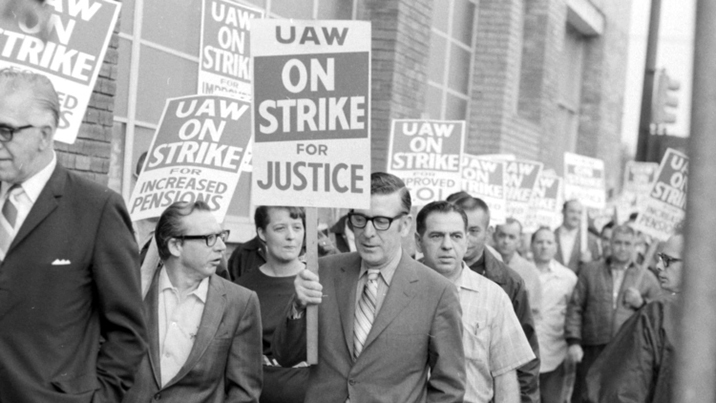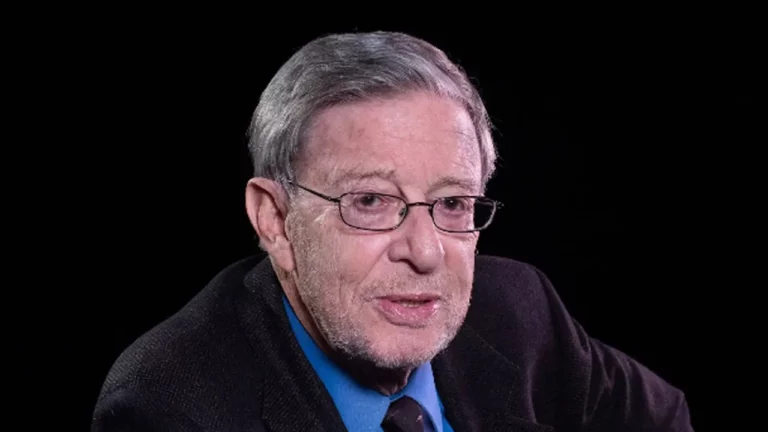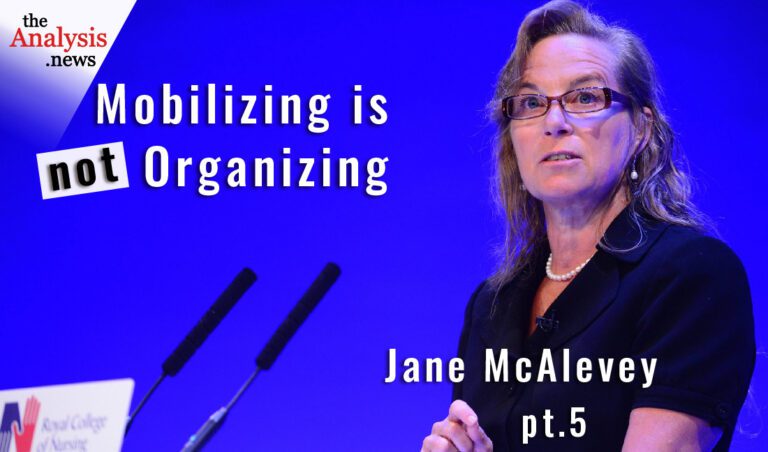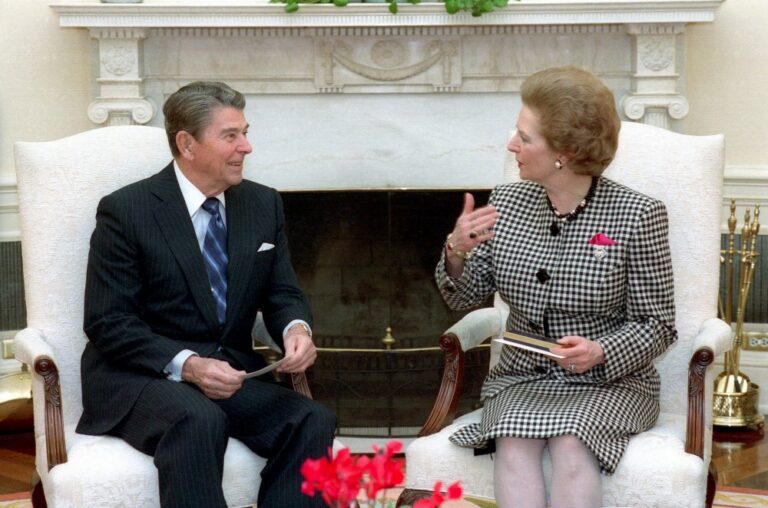This interview was originally published on October 11, 2013. In the final segment of this Reality Asserts Itself with Paul Jay, Frank Hammer says all workers should face up to the dangers of climate change and insist that we move toward a green economy.
PAUL JAY, SENIOR EDITOR, TRNN: Welcome back to The Real News. I’m Paul Jay in Baltimore. Welcome back to Reality Asserts Itself. We’re continuing our series of interviews with Frank Hammer.
Frank is a retired General Motors employee, worked there for 32 years. He was the president and chairman of the the United Auto Workers local 909, which was the transmission plant, and he worked as a staffer at the UAW as well in the General Motors department. And he’s a passionate defender of his adopted city, Detroit.
Thanks for joining us.
FRANK HAMMER, AUTOWORKER CARAVAN: Thank you one more time.
JAY: So before we get to you as a passionate defender of Detroit, let’s go to your other passion. And it seems to me sometimes this is your greatest passion. And that’s the whole issue of climate change. You’ve devoted a lot of your time to the issue of climate change. And why have this become the paramount issue for you as an autoworker?
HAMMER: Oh, I think it’s a paramount issue for me as just a human being, never mind the fact that I’m an autoworker. I think that in our earlier interview I talked a little bit about my dad seeing a threatening future and acting on it. And from everything that I understand about global warming and climate change, this is something that is probably the paramount crisis facing all of humanity, that if you read the science of it, it appears that we’re talking about irreversible tipping points, past which we have less control or no control over what happens with climate and, as a consequence, what happens to people all over the planet and the ecology of the planet. So as an autoworker, I see a possibility for trying to address it, especially given that our industry, the auto industry, I think accounts for 20 percent of the carbon emissions that accumulate in the atmosphere.
JAY: Why do you think this isn’t more of an urgent issue generally amongst the population and in media? I mean, it seems to me it was in the sense that around ’07, ’08, even to ’09, it was in the front pages. You had–even mainstream news were doing, like, two-week specials on the climate change crisis. It was on everyone’s lips that something had to be done. Tony Blair commissioned the Stern Report–Nicholas Stern, who was the former chief economist of the World Bank. And his report was virtually apocalyptic of what the consequences of global warming were going to be. And he looked at the science and was quite convinced the science was legitimate.
And now it’s like President Obama barely talks about it. He had one little speech a few months ago, and that was, like, the first time we heard him even mention it for most of his presidency. And it just isn’t on the front burner. Yet, as you say, if you listen to the scientists, it’s threatening our whole very existence, you could say.
HAMMER: M’hm. I think, first of all–I think the one important feature of Obama’s speech a couple of months ago or a month ago was that he was advocating that people talk about it in their homes, in their communities, in their churches. He neglected to mention unions, but we ought to be having that conversation there. And I think that that’s something that progressives should do everywhere, take him up on it and say, yeah, we have to have a national conversation about this question.
Generally speaking, why is that not happening? We have an entrenched fossil fuel industry that is doing everything it can to suggest that, oh, there’s doubt, and we really don’t know, and we need more data. They finance people who call themselves scientists to make those kinds of statements on the media. So I think the conversation about climate change in the corporate media is the exception at this point and certainly not the rule, for very obvious reasons. There are very entrenched interests who have their–you know, Bush talked about addiction to oil. Well, there’s not only addition to oil; there’s addiction to profits. And the old entrenched interests are not going to give those up, even if it means, you know, that we’re talking about massive dislocations around the globe.
And I look at that as sort of addictive behavior. If you look at addictive behavior, it continues even though it’s–creates destruction all around the one that’s addicted. And it’s got its enablers. And I see that as going on with–.
JAY: How much do you find amongst–you know, you’re talking to autoworkers and other workers all the time. How much do you find they’ve kind of bought the idea that if you start to have to deal with this, it’s actually–you’re going to lose jobs, that people are going to lower their standard of living, and that’s the actual only way to deal with climate change? I mean, people have internalized this argument.
HAMMER: Well, we have divisions throughout the labor movement on this very question. I mean, when–I’ll give you an example. The Laborers’ Union. If you go to the Facebook page during the Occupy, the cresting of the Occupy movement, they were all in support of the Occupy movement. But when it came to the Keystone XL pipeline, they said, oh, we’re totally against it. Why? Because it looks like it’s their jobs. Right?
JAY: Against the movement that was opposed to the pipeline.
HAMMER: Against–the movement against the pipeline. That is correct.
So I think the labor movement is really split and torn about which way, direction to go. And it’s a legitimate concern, because we should insist that we move toward a green economy, but not at the expense of workers. It should be at the expense of the capitalists who have brought us into this situation, and workers ought to be given alternative jobs with the alternative economy.
JAY: Which is what we were talking about in the last segment. I mean, Detroit would be a perfect place to do that.
HAMMER: Yeah. I think the moment–there are many progressives who look at the current moment as one of the early ’30s FDR New Deal and all of that and then saying we should try to re-create that. And what they’re forgetting is that the reason all that came about is because there was a threat, as we were talking earlier, about that there was a socialist country in the other side of the earth that was providing a threat to the capitalist system. And in order to rescue capitalism, well, they made these reforms in response to the mass movements here because they didn’t want to go there. They wanted to preserve capitalism.
We don’t have that threat today. They don’t have to be threatened by the revolutionary upsurge.
But I think we are in an “Arsenal of Democracy” moment. And that was in the early ’40s, when FDR and my union–Reuther was part of that–said, we have to begin to mobilize the auto plants in preparation for the fascist onslaught that was going on in Europe and German expansionism. And there was a discussion. And the auto companies said, oh, well, good; we’ll continue to do produce cars, and, you know, we’ll get around to building more factories. And the response by FDR was, oh, no, no, no, we don’t have that time. We’re going to shut down your auto production and we’re going to tell you to produce military armaments for the European theater. And that’s what happened.
We have that moment now that we don’t have the chance to wait. We need to begin to convert our economy now to address the threat that climate change and global warming poses.
JAY: And it seems to me that the elites looked at this situation, maybe earlier, but clearly in ’07, ’08, ’09, in that period, around the time the Stern Report came out, which was around that time, and lots of other evidence was surfacing–scientists, the UN commission was issuing reports–and, you know, the numbers were dire. And for a while, as I say, the media was on it, the politicians were talking about it. But I think there’s some moment there where they realized that when you really take in what a significant transformation of the economy was necessary to meet the targets the scientists are saying, it means you could no longer have capitalism as we/they know it. And they looked at that and they said, well, forget about it. You know, we’ll live with the consequences. You give me a choice of I’m going to give up my ownership and my political power, or the Third World, much of the South is going to drown, and we’re going to suffer consequences, but you know what, I’m going to be okay and my family’s going to be okay ’cause we’re rich, you know, give me that, and I’m going to let–you know, to hell with it. You know, like après moi, le deluge.
HAMMER: The right, right, the Tea Party right makes that very argument, that the left is talking about climate change in order to change capitalism. And they’re saying that’s all that it’s about, and we’re going to preserve capitalism, and to hell with your global warming. And that–I mean, that’s basically–that’s their argument. That’s why they don’t want to consider it, they don’t want to talk about it.
JAY: And in a sense they’re right.
HAMMER: In a sense they’re right.
JAY: I’m not sure–you know, maybe some of the left is wanting to promote it because they have this, you know, ideological objective, but the other side of it is it kind of just leads there, the conclusion leads that if you’re going to deal with these things on this scale, you’ve got to confront the power of the fossil fuel industry, you’ve really got to confront the power–you know, how things are owned and where political power comes from. Otherwise, you’re not going to have those kinds of changes.
And I think also part of what helped the critique of this was that a section of the elite saw climate change as a way to make money, and they saw, like, things like cap and trade and how you could turn all this into financialized products and you can have all kinds of schemes–oh, we’ll make money as we solve the climate change crisis.
HAMMER: Right, solve in quotes.
JAY: Yeah, solve in quotes. And then the critique of that is legitimate. And some of that came from the sort of skeptics who said, you know, they’re selling you a bill of goods on the science, ’cause they’ve just found a way to make a killing, you know, by financializing the problem.
HAMMER: Correct. We made a report in The Real News on the conference that I attended in South Africa that was sponsored by the National Union of Metalworkers of South Africa. And they said it very clearly. And I think that the union movement here in this country should take their lead. They said the crisis of climate change cannot be left in private hands, alternative energy cannot be left in private hands. And that was a program that they began to put forward in South Africa. And I think that capitalists are not going to take us out of this crisis while making money at it, because the making money at it is going to trump getting us out of the crisis.
JAY: Yeah. I mean, I wouldn’t mind if they could.
HAMMER: Oh, it’d be great. It’d be great.
JAY: I mean, I have no problem. If they can figure out a way to get rich and solve the crisis, you know, more power to them. But so far you don’t see that.
Well, let me just ask you another thing, because it seems to me that there’s–part of the fault here lies, I think, with some of the climate change activists, or more so the scientists themselves. I think that the Koch brothers and other people, the fossil fuel industry people that have been spending, you know, millions of dollars on creating doubt about the science–and put–not everyone that’s a skeptic is receiving fossil fuel money. There are some just legitimate skeptics. This is a question of science, and science ain’t perfect. It’s not absolute. And even climate change scientists, you know, they all say, you know, it’s this percent that this is going to happen, although I think the sort of evidence that we’re seeing already is pretty glaring in terms of, you know, forest fires and melting ice and all the rest. But still, it’s science, and there’s room for doubt.
But, you know, we’ve been trying to organize science debates on The Real News to get scientists debating skeptic scientists and have serious scientific debate about it, and we can’t get the climate change scientists to debate, ’cause they say it just gives credence to the other side and you can’t get into the scientific detail on these debates, so it’s too complicated for this. And I don’t know. I think they got–a lot of these scientists got burnt when they were on, like, CNNs and that and they got put up against kind of crackpots and they found themselves looking silly, and now they don’t want to do the debate. But there seems to be enough doubt about the science that it’s hard to get the momentum going on the need for change.
HAMMER: Yeah. I think that, you know, if you look at, for example, one fact that I think is a fact, that there’s more carbon emissions in the atmosphere today than there has been in the last 4 million years, okay, and there’s some scientific measurement, that really rings a loud bell to me. That says that we are entering a new episode in the history of the planet. And whatever doubt is out there–let me put it this way. There’s a cartoon that I’ve seen that I think really addresses this, and it’s a cartoon in an assembly hall, and there’s a list of all the things that we can do to address climate change. And somebody turns–one guy turns to the other one and says, yeah, but, you know, what if they’re wrong? We’ve still made a better planet, right, by virtue of what we’ve done. So it seems to me–my attitude is we ought to not second-guess this question, that we ought to do everything that we can to address it. And if we’ve–proven to be wrong, I mean, you know, we’ve still made a better place to live.
JAY: Yeah. And, I mean, when I go to the doctor, and if he prescribes, you know, a pill for me, I do my research on the internet, sure, but I have to in the final analysis take the preponderance of doctors and evidence–and I’m sure most of the skeptics, you know, if they have, you know, cancer or something else, they’re probably going to get chemotherapy. And there’s lots of skeptics about chemotherapy and other things. But, you know, when you’re facing life and death, you go where the majority of science says to go. And we are facing life and death if you believe the science. I do. I mean, I’ve looked at some of the skeptical arguments and I’ve tried to track down, you know, follow the fact trail of these arguments, and each time I’m certainly persuaded that this climate change science trumps the skeptic. qq
And, I mean, I’m partly getting into this rant because I’m looking for some climate change scientists that have expert level that are willing to debate some of the skeptics. I’m sure you’re out there. But if you’re watching or if someone’s watching who knows, let us know, ’cause we would like to do a series on some of the critical points and then move on. I mean, we’re not waiting for that. We are going to do a whole series of discussions and debates about solutions. We do start from the point, at least I do, you know, that climate science has more than proven itself. And the real question is: what will be the solutions? How do we address it? But still there’s a significant section of the population, and of especially more politicized people who are kind of on the internet and newsy that see all the skeptic stuff–I mean, we have all kinds of viewers at The Real News who love us and hate our climate change position, you know, think we’re getting sucked into the greenwashing pro-corporate climate stuff.
But just to kind of round things up–and you’re out there a lot talking to, you know, workers about this. What are you getting back?
HAMMER: I’ve begun to see receptivity, especially when you begin to talk about job creation. I mean, it makes sense to them from the point of view of we have this facilities that are there. We have, as you mentioned earlier, an incredible manufacturing workforce that in many ways are idle or had to find other work. And if you put those two things together and, for example, go into transit–we’re talking about having transit in Detroit. Why don’t we manufacture transit? Why don’t we manufacture rail cars? Why don’t we manufacture these things? It’s also a way of beginning to resolve the situation that’s facing Detroit. A large part of where it’s at is because of all the loss of manufacturing jobs. And this is a way of bringing some of that back.
JAY: Which, as I said earlier, Obama kind of said he was going to and then seemed to have forgotten all about it.
HAMMER: Obama said in March 2009 that we should treat Detroit and other Midwestern cities as if they were hit by a hurricane and that we should do everything in our power to address the needs of these communities. Now, I’m afraid that he might have meant what’s happened in New Orleans. What’s happened in New Orleans? They privatized the school system, the unions have been weakened, and so on. And I’m wondering: is that the model that he had? I hope not. I hope that he gets out of this sort of neoliberal persuasion and actually has the arsenal of democracy moment and says, no, we have to gear the economy for a new future.
JAY: You really hope that? I mean, you really–I mean, you hope that in the sense you actually think that’s possible?
HAMMER: I’m saying that that’s what’s necessary.
JAY: Alright. Thanks for joining us.
HAMMER: Thank you very much.
JAY: And thank you for joining us on The Real News Network.
Never miss another story
Subscribe to theAnalysis.news – Newsletter
“Frank Hammer is a retired General Motors employee. He worked there for 32 years. He is the former president of United Auto Workers Local 909 and also worked at the GM department of the United Auto Workers. He’s an adjunct faculty member at Wayne State University, and he’s a passionate defender of his adopted city, Detroit.”










